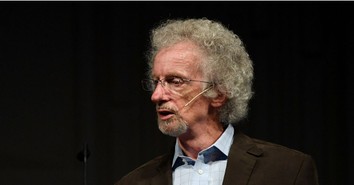What Does It Mean to "Wait on the Lord"?

We see throughout Scripture the command to "wait on the Lord" Psalm 27:14 tells us "Wait on the LORD: be of good courage, and he shall strengthen thine heart: wait, I say, on the LORD." Other versions put it this way:
"Stay with God! Take heart. Don't quit. I'll say it again: Stay with God." - The Message Bible
"Wait for the LORD; be strong and take heart and wait for the LORD." - NIV
"Hope in the LORD! Be strong! Let your heart take courage! Hope in the LORD!" - Common English bible
Another popular verse about on the Lord is from Isaiah and uses inspirational imagery of an eagle: “They that wait upon the Lord shall renew their strength; they shall mount up with wings as eagles” (Isaiah 40:31).
We have all been there, waiting for something to happen. Perhaps you are experiencing many visits to the doctor waiting for healing. Maybe you’ve been searching for a job far longer than you expected. A wayward child or a broken family situation may leave you feeling empty-handed and like all you can do is wait. So much of life is outside our control, even when it comes to our deepest needs. These are the times when waiting upon the Lord becomes most relevant.
What Does "Wait on the Lord" Mean?
What did Isaiah, and David, and other authors of the Bible mean when they wrote those words: “wait upon the Lord”?
The Hebrew word Isaiah uses for “wait” is Qavah. It means “to wait, look for, hope, expect.”
Waiting on the Lord is a deeply personal and transformative experience that requires trust, patience, and active faith. It's not about passively standing by but about confidently expecting God's perfect timing and guidance. For me, it's been a journey of learning to trust that God's plans are far greater than my own.
Even when it's hard to see, God is always working behind the scenes, aligning everything for our good. Waiting on the Lord means believing that His timing is perfect and that He will fulfill His promises in ways beyond our imagination.
To put it simply, it all boils down to where your power comes from. Just like Isiah reminds us to wait and rise on eagles wings, an eagle rises to great heights but has no jet engine behind him. His body is designed to maximize the power of the air, and he soars on unseen currents with agility and ease.
Isaiah welcomes us to see ourselves as dependent creatures, designed to rely upon something unseen, something greater than ourselves. It is not a weakness of the eagle that he is so dependent upon the power of air. Rather, this dependence is his greatest strength.
How to Wait on the Lord
Waiting is actively hoping and staying in close relationship with God, knowing that His plan is to bless our lives as we follow him.
Seeking God’s Presence
Actively waiting on the Lord means continually seeking His presence. Psalm 27:4 emphasizes the importance of dwelling in the house of the Lord and gazing upon His beauty. In practical terms, this can involve setting aside dedicated time each day for prayer, worship, and reading Scripture. Engaging in these spiritual disciplines helps to cultivate a deeper relationship with God and keeps our focus on Him. Attending church, participating in small groups, and engaging in community worship also support this pursuit, providing encouragement and accountability.
Trusting in His Timing
Trusting in God's timing requires a heart posture of faith and patience, especially when circumstances seem uncertain or delayed. Practically, this can mean refraining from rushing into decisions out of impatience and instead seeking God’s guidance through prayer and wise counsel. It also involves surrendering our own plans and timelines to God, believing that His plans for us are good and that He is working all things together for our benefit, even when we can't see the immediate results.
Renewing Our Strength
This renewal comes from an active reliance on God’s promises and His Spirit. Practically, we can experience this renewal by regularly immersing ourselves in God’s Word, which provides comfort, guidance, and encouragement. Engaging in spiritual practices such as fasting, quiet time meditating on Scripture, and Sabbath rest can also refresh our spirits. Additionally, sharing our burdens with fellow believers and drawing strength from the community of faith helps us to stay resilient and hopeful during times of waiting.
By seeking God’s presence, trusting in His timing, and actively renewing our strength, we can navigate the waiting periods in our lives with a sense of purpose and peace, knowing that God is faithfully at work.
Practical Application:
- Daily Practices: Start each day with a time of prayer and reflection, asking God to fill you with hope and trust for His plans.
- Scripture Meditation: Focus on key verses like Isaiah 40:31 and Psalm 27:14, meditating on their promises and allowing them to strengthen your resolve.
- Community Engagement: Join a small group or Bible study where you can share your journey, receive encouragement, and pray with others.
- Acts of Service: While waiting, engage in serving others. This keeps your focus outward and aligns your actions with God’s heart for love and service.
- Personal Journaling: Keep a journal of your prayers, hopes, and how you see God moving in your life, even in small ways. This can be a powerful reminder of His faithfulness.
By actively hoping and staying in close relationship with God, we can navigate the waiting periods in our lives with faith and expectation, trusting that He is always working for our good and His glory.
Set Your Mind as Your Wait
To actively wait on God, fill your mind with the truth about God’s character, especially as it pertains to your situation. In Colossians, Paul says, “set your minds on things above, not on earthly things” (Colossians 3:2).
It may take some practice to deliberately “set your mind” on anything but your problems. But you can use your worry to generate reminders to set your mind on things above.
- Pick a specific scripture that pertains to your situation. (See some ideas below.)
- Write it on a card or make it a background picture on your phone.
- Anytime you find yourself worrying about your situation, pull out your card or your phone and read the scripture.
If you are waiting on healing, search out scriptures and stories that describe God as a healer:
- Jesus healed generously and joyfully! Mark 6:56
- Jesus provided healing for all generations on the cross. Isaiah 53:4-6
- Check out this article for many more scriptures on healing
If you are waiting on provision, immerse yourself in the truth that God takes care of His children:
- “God is able to bless you abundantly.” 2 Corinthians 9:8
- Jesus teaches us to look at how God takes care of birds and flowers for evidence of how He will take care of us. Matthew 6:25-34
- This article points to many other scriptures about provision.
If you are waiting on direction for your life or for a specific situation, dwell on the fact that God has promised to guide us.
- “I will instruct you and teach you in the way you should go…” Psalm 32:8
- “This is the way, walk in it…” Isaiah 30:21
- More scriptures on guidance are listed in this article.
Whatever your situation, let your concerns about it direct your attention upward, to your heavenly Father, who cares for you so deeply.
Confidence in the Waiting
Remembering how God has worked in the past means reflecting on the moments when He provided, guided, or helped you through difficult times. It involves recalling these experiences to build your trust in Him.
Knowing that God loves you and has a track record of faithfulness gives you confidence to wait on Him now. It's like looking back at a map to see how far you've come, which reassures you that you're on the right path and that God is guiding you every step of the way. This confidence helps you trust that He will fulfill His promises in His perfect timing. Let's look at some Scripture's that remind us in the wait that God is good:
"The Lord is good to those whose hope is in him, to the one who seeks him; it is good to wait quietly for the salvation of the Lord." - Lamentations 3:25-26
"But as for me, I watch in hope for the Lord, I wait for God my Savior; my God will hear me." - Micah 7:7
"I wait for the Lord, my whole being waits, and in his word I put my hope. I wait for the Lord more than watchmen wait for the morning, more than watchmen wait for the morning." - Psalm 130:5-6
"Surely your goodness and love will follow me all the days of my life, and I will dwell in the house of the Lord forever." - Psalm 23:6
"Taste and see that the Lord is good; blessed is the one who takes refuge in him." - Psalm 34:8
"For I know the plans I have for you, declares the Lord, plans to prosper you and not to harm you, plans to give you hope and a future." - Jeremiah 29:11
"And we know that in all things God works for the good of those who love him, who have been called according to his purpose." - Romans 8:28
"Every good and perfect gift is from above, coming down from the Father of the heavenly lights, who does not change like shifting shadows." - James 1:17
The person in the doctor’s waiting room expects the doctor to play a part in her healing. The person waiting on God expects Him to use any and all of His resources to bring healing in the right time and in the right way. Maybe this doctor will be an important part of God’s plan to heal or maybe not. Either way, it’s God who will bring the healing.
Another person doesn’t have enough money in his bank account to pay rent, which is due in two days. He is applying for jobs left and right, but nothing has come through so far. He has asked a friend for a loan and expects this friend will probably help. But he ultimately expects that God will provide a job for him and will take care of his family, because he knows God is in charge of his life.
The Ultimate Context of the Waiting
Let’s be real. Sometimes thinking about the past brings up more questions than answers. Maybe you lost someone you loved, even though you prayed for healing. Maybe you’ve been in debt and are afraid of returning to that situation. We all have stories that remain unresolved.
The thing to remember is this: the story isn’t over yet.
We all experience times when we feel like God doesn't hear us and doesn't care about our needs. During these times, as we put our faith and trust in Him, we can rest knowing that He is in control. God loves us. We can believe His promises. Even in the waiting, we can be assured that His goal is to bless us and work it all out for good. (Romans 8:28) Through seeking God, staying active in prayer and Scripture meditation, and engaging in worship, we can patiently wait on the Lord.
Photo credit:©Getty Images/Boonyachoat
Originally published July 11, 2019.







